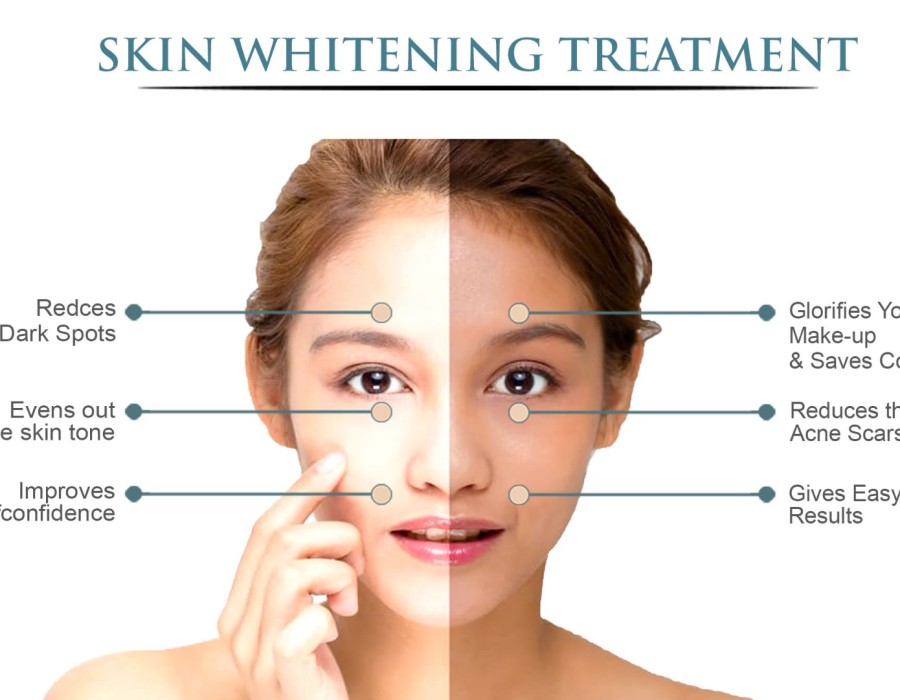Skin-lightening treatments have gained significant popularity in recent years, driven by the desire for an even skin tone and the reduction of pigmentation issues. Dr. Neha Agrawal, a renowned dermatologist, sheds light on the various aspects of these treatments, their benefits, and potential risks.
Understanding Skin-Lightening Treatments
Skin-lightening treatments aim to reduce melanin, the pigment responsible for skin color, to address issues such as hyperpigmentation, dark spots, and uneven skin tone. These treatments can be categorized into topical agents, cosmetic procedures, and natural remedies.
Types of Skin-Lightening Treatments
1. Topical Agents:
— Hydroquinone: A commonly used depigmenting agent that decreases the formation of melanin.
— Retinoids: Vitamin A derivatives that promote cell turnover and lighten pigmentation.
— Vitamin C: An antioxidant that brightens the skin and reduces dark spots.
— Kojic Acid: A natural compound that inhibits melanin production.
2. Cosmetic Procedures:
— Chemical Peels: Use of acids to exfoliate the skin and reduce pigmentation.
— Laser Therapy: Targeted light therapy to break down melanin deposits.
— Microdermabrasion: Mechanical exfoliation to remove the outer pigmented layers of the skin.
3. Natural Remedies:
— Lemon Juice: Contains vitamin C and citric acid, which have lightening properties.
— Aloe Vera: Helps to reduce pigmentation and soothe the skin.
— Turmeric: Has anti-inflammatory and skin-brightening effects.
Benefits of Skin-Lightening Treatments
- Improved Skin Tone: Achieve a more even complexion by reducing dark spots and pigmentation.
- Enhanced Confidence: Many individuals feel more confident with a clearer, more uniform skin tone.
- Youthful Appearance: Treatments can make the skin look younger and more radiant.
Potential Risks and Considerations
- Skin Irritation: Some treatments can cause redness, itching, or allergic reactions.
- Sun Sensitivity: Skin-lightening treatments often make the skin more sensitive to sunlight, necessitating the use of sunscreen.
- Overuse Risks: Prolonged use of certain agents like hydroquinone can lead to ochronosis, a condition where the skin becomes darker.
Conclusion
Skin-lightening treatments offer a range of options for those looking to achieve a more even skin tone. However, it is essential to approach these treatments with caution and under professional guidance. Dr. Neha Agrawal emphasizes the importance of consulting with a dermatologist to choose the safest and most effective treatment tailored to individual skin needs.






Comments